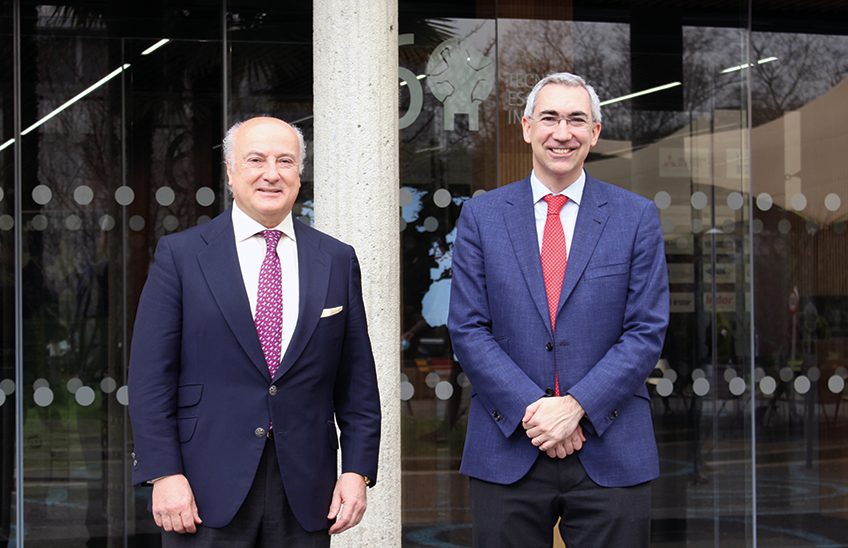The Chair Catastrophes of the Aon España Foundation in Tecnun promotes the research on resilience and urban critical infrastructures.
Tecnun signature a new partnership agreement to finance the work of the Chair Catastrophes of the Aon España Foundation.

PhotoPaulaBerroa/Pedro Tomey and Raúl Antón at campus of San Sebastián de la Universidad.
15 | 03 | 2022
Cities and municipalities must have the appropriate capabilities and mechanisms at management to be able to manage critical infrastructure and its interdependencies in the event of disasters, with the goal to improve the resilience of cities at partnership public-private.
This is the main conclusion of the doctoral thesis "guide of Governance of Urban Critical Infrastructures for Resilient Municipalities in the context of Climate Change", which has been presented at Tecnun, coinciding with the signature of the new partnership agreement for the financing of the work of the Chair of Catastrophes of the Aon Foundation Spain.
The research, carried out by Dr. Cinta Lomba and supervised by Professors Leire Labaka and Josune Hernantes, was aimed at demonstrating the importance of having the appropriate management capabilities and mechanisms to be able to manage critical infrastructures and their interdependencies in the event of crisis or catastrophe, with the aim of improving the resilience of cities. goal .
Pedro Tomey, Director General of the Aon Foundation, stated that "this thesis Doctoral is another milestone in the research and scientific-academic activities in our Chair of Catastrophes, which already stands out for the progress in the diagnosis and prevention of natural or man-made disasters, with the goal to anticipate them, seek answers to their impact and sustainable solutions to their consequences, always with special attention to the most vulnerable people".
The research proposes a guided process for cities to adopt governance models that allow them to manage their critical infrastructures, with the goal to become more resilient to face the challenges of climate change and guarantee essential services to the population in short and long term crisis situations deadline. Factors have been identified core topic as the co-responsibility and commitment of all agents -public, private and social- in the development of resilience; the importance of vertical and horizontal integration of policies between the different institutional levels to guarantee their coherence;the flexibility and adaptability of the governance system; or the capacity to innovate the technological framework of critical infrastructures and cities, in order to face the challenges of climate change and transform towards more sustainable future models.
As defended by Dr. Cinta Lomba, "progress must be made in the knowledge about the impact of climate change on critical infrastructures, and it is core topic that cities have tools to develop commitment and shared management to improve their resilience".




